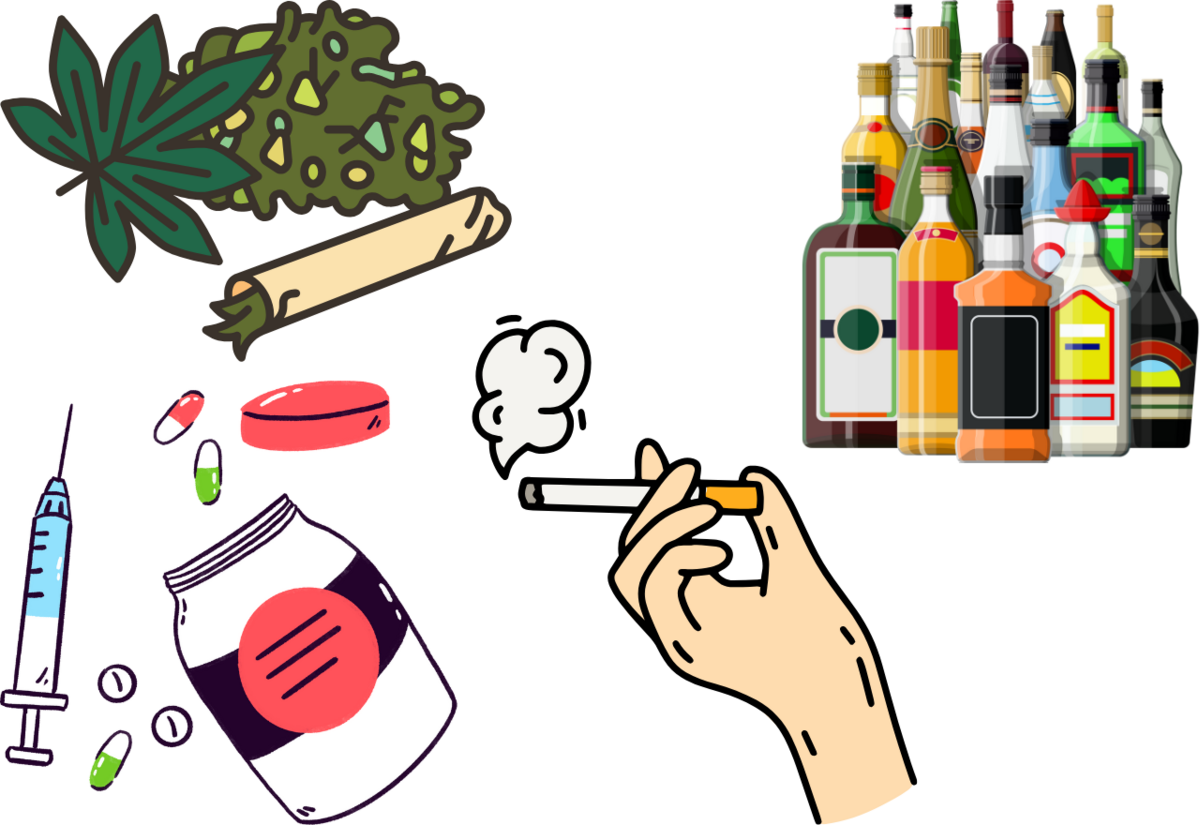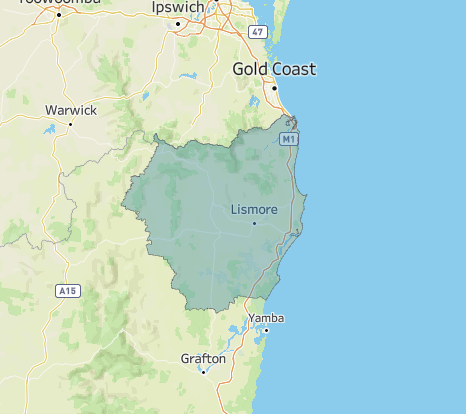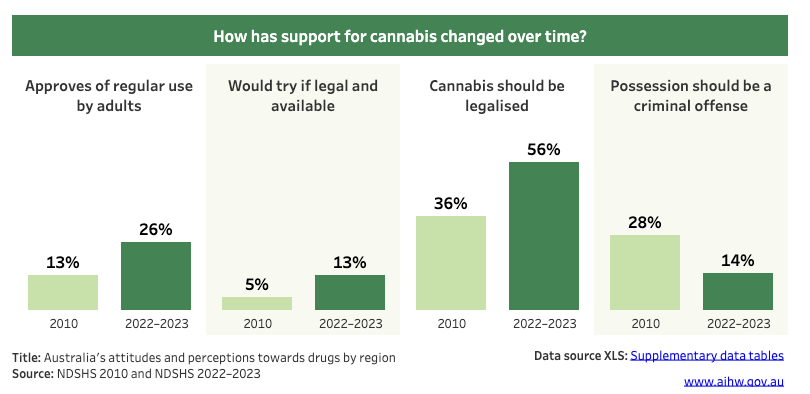New study shows local opinions on alcohol, tobacco and cannabis
Simon Mumford
26 May 2025, 9:02 PM

The National Drug Strategy Household Survey (NDSHS) local mapping tool was released today by the Australian Institute of Health and Welfare, outlining opinions on alcohol, smoking, cannabis and illicit drugs in the Richmond/Tweed area for those 14 and over..
The NDSHS is a national study conducted every 3 years on behalf of the Department of Health, Disability and Ageing. The survey is part of the National Drug Strategy 2016–2027, which aims to reduce and prevent harms of alcohol, tobacco and other drugs.
Findings from the survey are used by a range of stakeholders, including policymakers and researchers to shape and regulate reform measures.
While these latest results are from 2022/23, the next survey will be in the field in the coming weeks, starting on 16 June.
The summary of national report findings between 2019 and 2022/23 was:
- Tobacco
- The proportion of people in Australia who smoked tobacco daily decreased to a historic low of 8.3%.
- Support increased for some policies aimed at reducing the problems associated with tobacco use, with the biggest increases occurring for policies aimed at premises that sell tobacco and banning additives in cigarettes to make them less attractive to young people.
- E-cigarette use
- E-cigarette use increased between 2019 and 2022–2023, particularly among young people.
- Support for all policy options addressing problems associated with vaping increased substantially.
- Alcohol
- 39% of people believed that alcohol was responsible for the most deaths in Australia in 2022–2023, up from 34% in 2019.
- 31% of people believed excessive drinking of alcohol was the drug of most serious concern for the community, up from 26% in 2019.
From today's interactive mapping release, we can learn about local attitudes and perceptions about tobacco smoking, alcohol, cannabis and other illicit drugs for the 2022/23 survey. The data collected was from the Richmond/Tweed area, which includes Tweed Heads in the north to just past Evans Heads in the south and west to Tabulam and up to Woodenbong near the Queensland border. So, Lismore, Ballina, Byron, Casino, Kyogle and Mullumbimby are all included.

(The Richmond/Tweed area for the NDSHS mapping tool)
ALCOHOL
When asked what measures should be taken to reduce excessive alcohol consumption, 72% of people supported stricter enforcement of the law against supplying alcohol to minors. Forty-seven per cent (47%) of people opposed increasing the price of alcohol. This was the most opposed measure.
The biggest difference in support was related to restrictions on where zero alcohol products with an alcohol brand can be displayed and sold in stores. Australia rated that measure 35%, NSW 36%, while Richmond/Tweed was 26%.
The largest change in support over the last 12-13 years was reducing the trading hours for pubs and clubs. This fell from 58% in 2010 to 22% in 2022/23.
If people were given $100 to reduce alcohol use, they would spend it on:
- Education $39
- Treatment $37
- Law Enforcement $24
TOBACCO SMOKING
When it came to measures to reduce tobacco use, 80% of people supported prohibiting the sale of e-cigarettes/vapes, including those with nicotine, to people under the age of 18.
The measure with the most opposition was increasing the tax on tobacco products to discourage smoking, which was 23%. Seventy-two per cent (72%) of people approved of restricting the use of e-cigarettes in public places.
The biggest difference in opinion related to banning the sale of tobacco products is where people are consuming alcohol. Fifty-three per cent (53%) of Australians thought it was a good idea, 54% of NSW people and 41% in Richmond/Tweed.
In terms of attitude towards a regular tobacco user in 2022/23, 59% disapproved, 11% approved, and 30% were indifferent.
The largest change in support over the last twelve years was increasing the tax on tobacco products to discourage smoking. In 2010 68% of people favoured that measure, that dropped to 50% in 2022/23.
CANNABIS
Unsurprisingly, 86% of people in Richmond/Tweed believe personal possession of cannabis should not be a criminal offence. That compares to 78% in NSW and 80% in Australia.
When asked if cannabis should be legalised for personal use, 56% were in support, compared to 44% in NSW and 45% in Australia.
When it came to someone being caught in possession of cannabis, 73% said nothing should happen or a warning given. Sixteen per cent said they should be referred to a treatment or education program.
If cannabis were legal, 13% would try it, 21% would use it about as much as they do now, while 63% would not use it.
Over the past dozen years, attitudes towards cannabis have definitely shifted.

ILLICIT DRUGS
When it comes to illicit drugs, 66% supported checking for drugs. If given $100 to spend on reducing the harm of illicit drugs, people would spend it on Education $39, Treatment $34 and Law Enforcement $26.
If people were found in possession of ecstasy, hallucinogens, heroin, methamphetamine/amphetamine, how many thought referral to a treatment or an education program was the best action:
- Ecstasy 37%
- Hallucinogens 41%
- Heroin 55%
- Methamphetamine/amphetamine 55%
In terms of people's attitudes towards ecstasy, 66% opposed legalising the drug, while in 2010 the percentage was 81.
In summary, the Richmond/Tweed participants have a more relaxed attitude to cannabis than the rest of the population in NSW and Australia, yet they also believe strongly that selling alcohol, e-cigarettes and tobacco to minors should be protected and that increasing the price of tobacco and cigarettes is not the preferred deterrent to discourage use.
The results of the 2025 survey will be very interesting.

